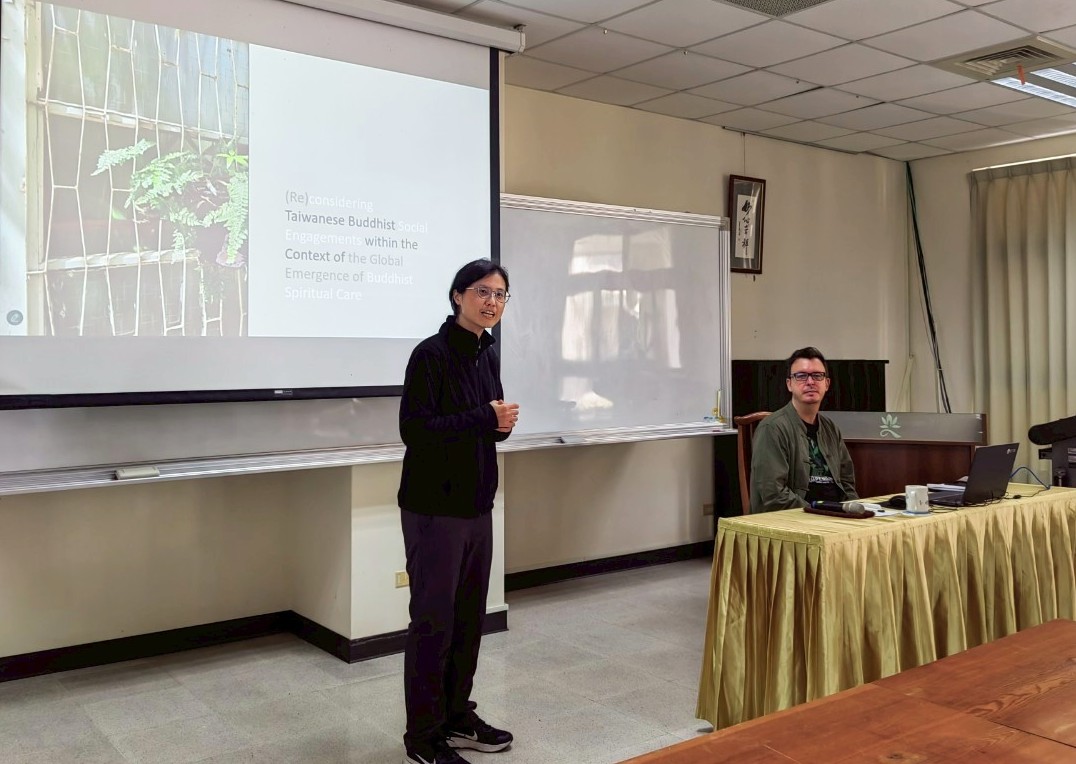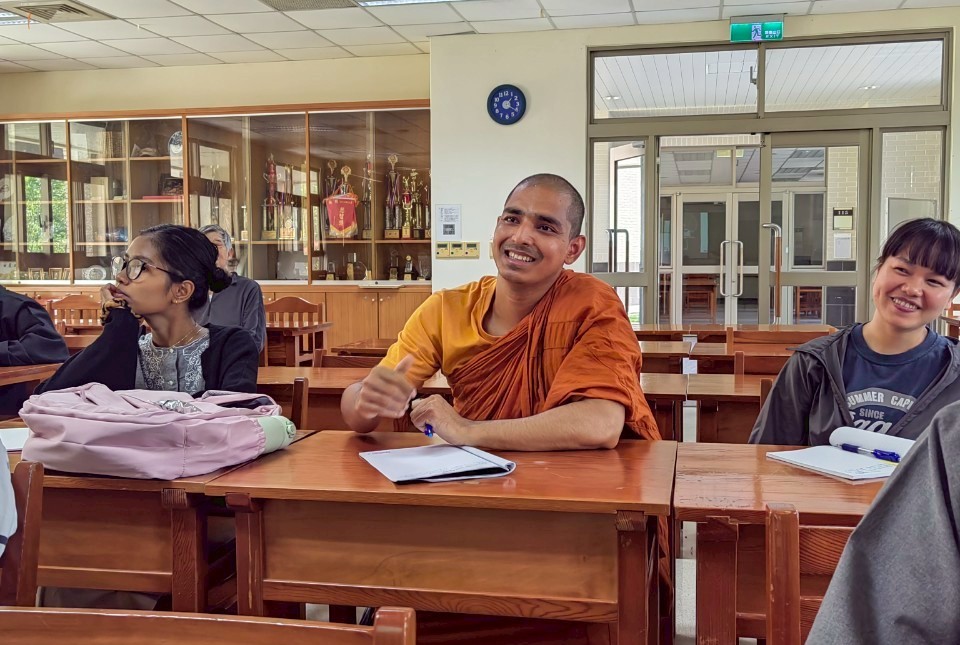In a lecture focused on Buddhist spiritual care in Taiwan within the framework of globalization, Dr. Jens Reinke (Huang Yingsi), Assistant Professor at the Faculty of Religion and Theology, Vrije Universiteit Amsterdam, shared insights from his cross-national research on Buddhist spiritual care. He explored both the development and challenges faced by Taiwanese Buddhist organizations in this emerging field.
Dr. Reinke explained that the concept of "spiritual care" originates from the Christian pastoral tradition, where clergy historically provided emotional and spiritual support to patients, prisoners, and soldiers. In recent decades, however, this model has expanded to encompass multi-religious and secular approaches to care. Many departments of religious studies in Europe and North America have since introduced training programs for spiritual care providers.
Taking the Netherlands as a case study, Dr. Reinke noted that Buddhist spiritual care was officially recognized in 2000, initially to meet the needs of incarcerated individuals seeking Buddhist guidance. Since then, it has become increasingly institutionalized and professionalized at both governmental and civil levels, with the establishment of a Buddhist Supervisory Committee and the inclusion of Buddhist chaplaincy courses in university curricula. Buddhist spiritual caregivers in the Netherlands often work across sectarian lines, adopting a client-centered approach that integrates Buddhist principles with secular mindfulness techniques.
In contrast, while Taiwan has seen Buddhist organizations—such as Tzu Chi, rooted in Humanistic Buddhism—engage in spiritual care in hospitals, correctional facilities, and even the military, its system remains less developed. Legal frameworks concerning the separation of religion and state pose limitations on the formal role of spiritual caregivers in public institutions. Unlike in the Netherlands, Taiwan lacks a well-defined government–civil society partnership in this area. Interestingly, Dr. Reinke pointed out that spiritual care in Taiwan, though often provided by Buddhist organizations, may serve recipients from different religious backgrounds—such as Indigenous Christians—revealing the interreligious and intercultural dynamics of spiritual care in practice.
During the Q&A session, one student asked, “How do you define spirituality? Given that the term originates from Christianity, can it truly be applied to Asian religious traditions like Buddhism? Might it distort our understanding of Buddhism?” Another student inquired about the specific content of chaplaincy training programs in Western universities. Dr. Reinke responded that these questions lie at the heart of his research. He emphasized that in a globalized context, the term “spirituality” has been reinterpreted beyond its original religious connotations, now serving as an open framework for interfaith dialogue—one in which Buddhism can uniquely participate. He also stressed the importance of redefining spirituality through fieldwork and case-based inquiry.
Contemporary chaplaincy programs in Europe and the U.S., he noted, typically blend techniques in listening, compassion, and psychological support with religious teachings and practices. Yet in real-life care settings, spiritual caregivers must prioritize attentive listening, accompaniment, acceptance, and adaptability—shifting from a doctrinal approach to one grounded in the needs of the individual.
Dr. Reinke concluded by highlighting his methodological approach, which draws on multi-sited and multi-positional ethnography to explore how Buddhist spiritual care is locally practiced across interconnected social contexts. His research seeks to understand how, under the pressures of global modernity, Buddhist communities might offer “better” models of end-of-life care.



 College and Department of Buddhist Studies, FGU
College and Department of Buddhist Studies, FGU